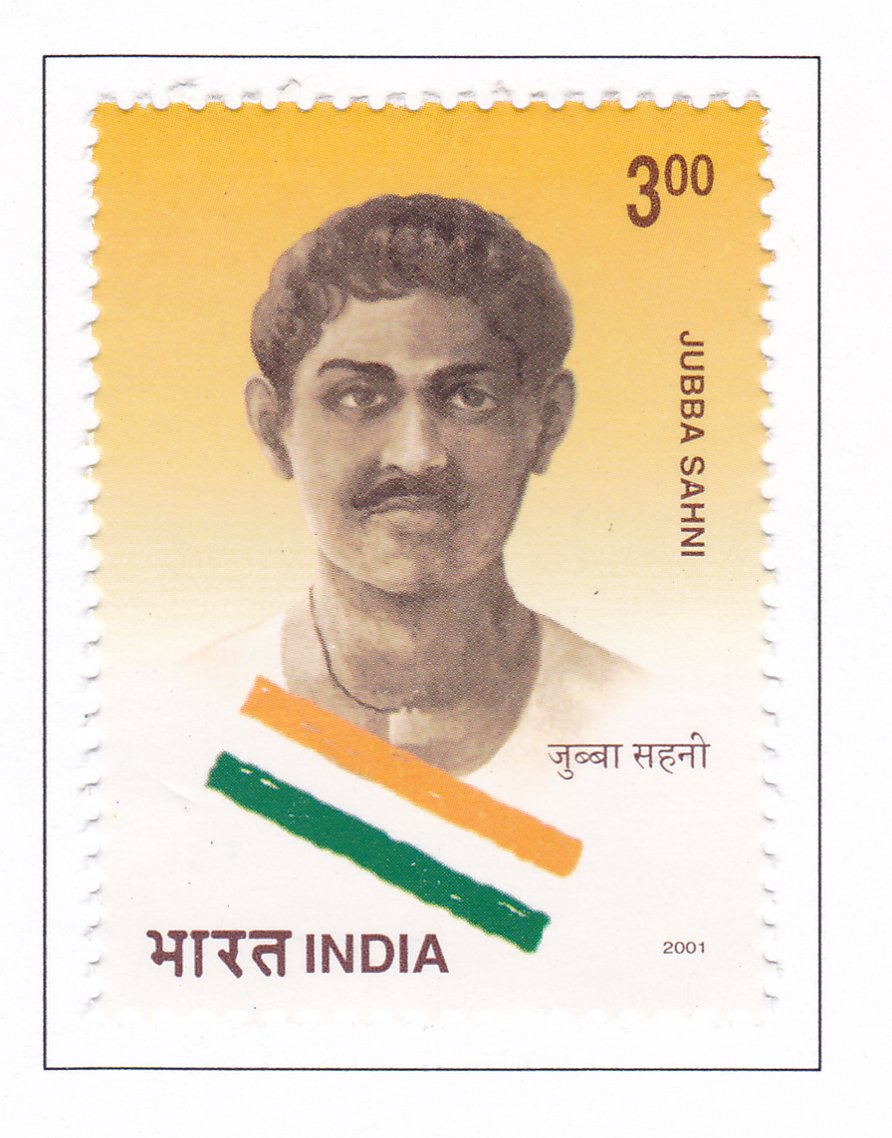Jubba Sahni (1906-1944)

Technical Data
| Stamp Set | Personality Series |
|---|---|
| Date of Issue | January 29, 2001 |
| Denomination | Rs. 3 |
| Quantity | 400,000 |
| Perforation | comb 13 |
| Printer | Eagle Press Ltd. |
| Watermark | No Watermark |
| Colors | Multicolor |
| Catalog Codes |
Michel IN 1818 Stamp Number IN 1878 Yvert et Tellier IN 1585 Stanley Gibbons IN 1986 |
| Themes | Famous people | Freedom Fighters | Men |
Table of Contents
Jubba Sahni (1906-1944)
Jubba Sahni (1906-1944) was a notable figure in India’s revolutionary freedom struggle. His life and contributions highlight the passionate and often tragic nature of the revolutionary movement against British colonial rule.
Early Life and Influences
- Birth and Background: Jubba Sahni was born in 1906 in a poor family in Muzaffarpur District, Bihar. His early life exposed him to the harsh realities of British colonialism, especially through his work as a laborer on an agricultural farm where he witnessed the exploitation of Indian workers by British supervisors.
Involvement in the Freedom Struggle
- Early Activism: Sahni joined the freedom struggle during the Salt Satyagraha of 1930, a mass protest against the British monopoly on salt production.
- Revolutionary Activities: He became increasingly involved in revolutionary activities and aligned himself with various revolutionary groups committed to the overthrow of British rule. His commitment to the cause led him to participate in several acts of defiance against British authorities.
Significant Contributions
- Armed Revolt: In August 1942, during the Quit India Movement, Sahni led an armed revolt against the British Police Station in Meenapur. During this confrontation, the police station in-charge, Waller, was killed. This act was a bold statement against British rule and marked a significant escalation in his revolutionary activities.
Capture and Execution
- Arrest and Trial: Following the armed revolt, Sahni was arrested and tried. The British government, determined to set an example, sentenced him to death.
- Execution: He was hanged in Bhagalpur Central Jail in 1944 at the age of 38. His execution was a grim reminder of the sacrifices made by revolutionaries in the struggle for India’s independence.
Legacy
- Martyrdom: Sahni’s dedication to the cause and his ultimate sacrifice made him a martyr in the eyes of many. His story is remembered as a testament to the courage and selflessness of those who fought against colonial rule.
- Inspiration: His life and sacrifice continue to inspire those who value freedom and justice. Sahni’s contributions to the revolutionary movement are commemorated through various means, including special stamps and educational materials, which honor his role in India’s quest for independence.
Jubba Sahni’s legacy is a poignant chapter in the broader narrative of India’s freedom struggle, reflecting both the fierce resistance against British rule and the personal costs borne by those who took up arms for their country’s liberation.
